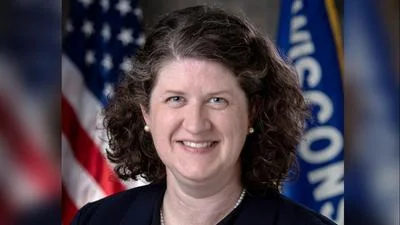Joel Kitchens, Wisconsin State Representative for 1st District | www.facebook.com
Joel Kitchens, Wisconsin State Representative for 1st District | www.facebook.com
According to the Wisconsin State Legislature's official website, the bill was described as follows: "the use of artificial intelligence or other machine assisted translation in court proceedings and of telephone or live audiovisual interpretation in criminal trials. (FE)".
The following is our breakdown, based on the actual bill text, and may include interpretation to clarify its provisions.
In essence, this bill authorizes the use of artificial intelligence (AI) or machine-assisted translation in court proceedings, including civil and criminal cases, municipal proceedings, and administrative contested case proceedings, as an alternative or addition to human interpreters. It permits the use of AI translation without needing a waiver in certain scenarios and allows interpreters to participate via telephone or live audiovisual means during criminal trials, which expands on the existing allowance for non-trial proceedings. The legislation aims to provide flexibility in translation services in legal settings, potentially increasing efficiency and accessibility in the justice system.
The bill was co-authored by Senator Chris Kapenga (Republican-33rd District), Representative Scott Allen (Republican-82nd District), Representative David Armstrong (Republican-67th District), Representative Elijah R. Behnke (Republican-6th District), Representative Lindee Rae Brill (Republican-27th District). It was co-sponsored by Senator Julian Bradley (Republican-28th District), along 13 other co-sponsors.
Joel Kitchens has co-authored or authored another 49 bills since the beginning of the 2025 session, with none of them being enacted.
Kitches graduated from Ohio State University in 1979 with a BS.
Kitchens, a Republican, was elected to the Wisconsin State Assembly in 2015 to represent the state's 1st Assembly district, replacing previous state representative Garey Bies.
In Wisconsin, the legislative process starts when a senator, constituent, group, or agency proposes an idea for a bill. After drafting, the bill is introduced, numbered, and referred to a committee for review and public input. If approved, it moves through three readings and votes in both the Senate and Assembly. Once both chambers pass the same version, the bill goes to the governor, who can sign it, veto it, or let it become law without a signature. Only a small share of bills introduced each session ultimately become law. You can learn more about the Wisconsin legislative process here.
| Bill Number | Date Introduced | Short Description |
|---|---|---|
| AB292 | 05/30/2025 | The use of artificial intelligence or other machine assisted translation in court proceedings and of telephone or live audiovisual interpretation in criminal trials. (FE) |
| AB279 | 05/30/2025 | Talent recruitment grants. (FE) |
| AB196 | 04/15/2025 | Rehired annuitants in the Wisconsin Retirement System. (FE) |
| AB185 | 04/15/2025 | Property tax exemption for nonprofit theaters. (FE) |
| AB159 | 04/02/2025 | Creating a rural creative economy development grant program. (FE) |
| AB119 | 03/11/2025 | Transfer of nursing home beds |
| AB90 | 02/28/2025 | Copies of and inspection or disclosure of information contained in certain vital records. (FE) |
| AB79 | 02/28/2025 | Prosecuting or adjudicating delinquent a person under the age of 18 for committing an act of prostitution |
| AB43 | 02/17/2025 | Permitting pharmacists to prescribe certain contraceptives, extending the time limit for emergency rule procedures, providing an exemption from emergency rule procedures, granting rule-making authority, and providing a penalty. (FE) |
| AB2 | 02/03/2025 | Requiring school boards to adopt policies to prohibit the use of wireless communication devices during instructional time |





 Alerts Sign-up
Alerts Sign-up